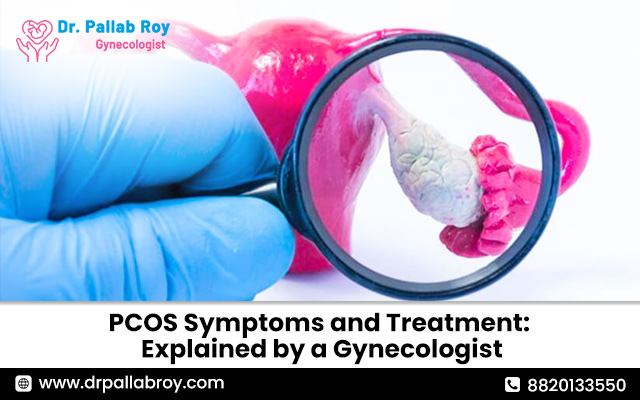Polycystic Ovary Syndrome (PCOS) is a common hormonal disorder affecting women of reproductive age. Understanding PCOS symptoms and the available treatments is crucial for managing this condition effectively.
What is PCOS?
PCOS is characterized by an imbalance in hormones that can disrupt the menstrual cycle and affect overall reproductive health. Women with PCOS often experience a variety of symptoms, which can vary in severity.
Common PCOS Symptoms
- Irregular Periods: One of the most noticeable signs of PCOS is irregular or missed menstrual periods. This happens because the ovaries may not release eggs regularly.
- Excess Androgens: Elevated levels of male hormones, known as androgens, can lead to symptoms like excess facial or body hair (hirsutism) and severe acne.
- Polycystic Ovaries: Ultrasound may reveal multiple small cysts on the ovaries, which can be a marker of PCOS. These cysts are not harmful but can affect ovarian function.
- Weight Gain: Many women with PCOS struggle with weight gain or difficulty losing weight, often due to insulin resistance.
- Hair Thinning: Thinning hair on the scalp, often called androgenic alopecia, can also be a symptom of PCOS.
Managing PCOS: Treatment Options
PCOS Symptoms and Treatment can be tailored to each individual’s needs, focusing on relieving symptoms and managing long-term health risks.
- Lifestyle Changes: Adopting a healthy lifestyle can significantly improve PCOS symptoms. Regular exercise and a balanced diet can help manage weight, regulate menstrual cycles, and improve insulin sensitivity.
- Medications:
- Hormonal Birth Control: Pills, patches, or rings can help regulate menstrual cycles and reduce symptoms like acne and excessive hair growth.
- Metformin: This medication, commonly used for diabetes, can improve insulin sensitivity and may help regulate menstrual cycles.
- Anti-Androgens: Drugs like spironolactone can help reduce symptoms related to high androgen levels, such as hirsutism.
- Fertility Treatments: For women trying to conceive, treatments like ovulation-inducing medications (e.g., clomiphene citrate) or assisted reproductive technologies may be recommended.
Conclusion
Understanding and managing PCOS symptoms is essential for improving quality of life and overall health. Effective PCOS symptoms and treatment involve a combination of lifestyle changes, medications, and sometimes fertility treatments. Regular consultations with a gynecologist can help tailor a treatment plan that best suits individual needs. If you’re experiencing symptoms of PCOS, seeking professional guidance can lead to better management and relief.

